Top 10 historical sites in Italy
Amalfi Coast, Amalfi Coast, Basilicata, Bookings For You, Florence, Inspiration, Italy, Pisa, Pompeii, Puglia, Rome, Sicily, Tuscany, Umbria, Venice
When it comes to historical monuments, awe-inspiring architecture and incredible culture, Italy’s reputation is second to none. You can’t think about Italy without Italy’s most famous historical sites springing directly to the forefront of your mind. Perhaps this isn’t surprising when you consider that there are a staggering 58 UNESCO World Heritage sites in Italy. The history of Italy is a long and fascinating one and, thankfully, so much of Italy’s ancestral footprint remains to be seen today. But, how do you choose where to start? Well, for what it’s worth, here are our favourite 10 historical sites in Italy.
1. Pompeii and Herculaneum, Campania
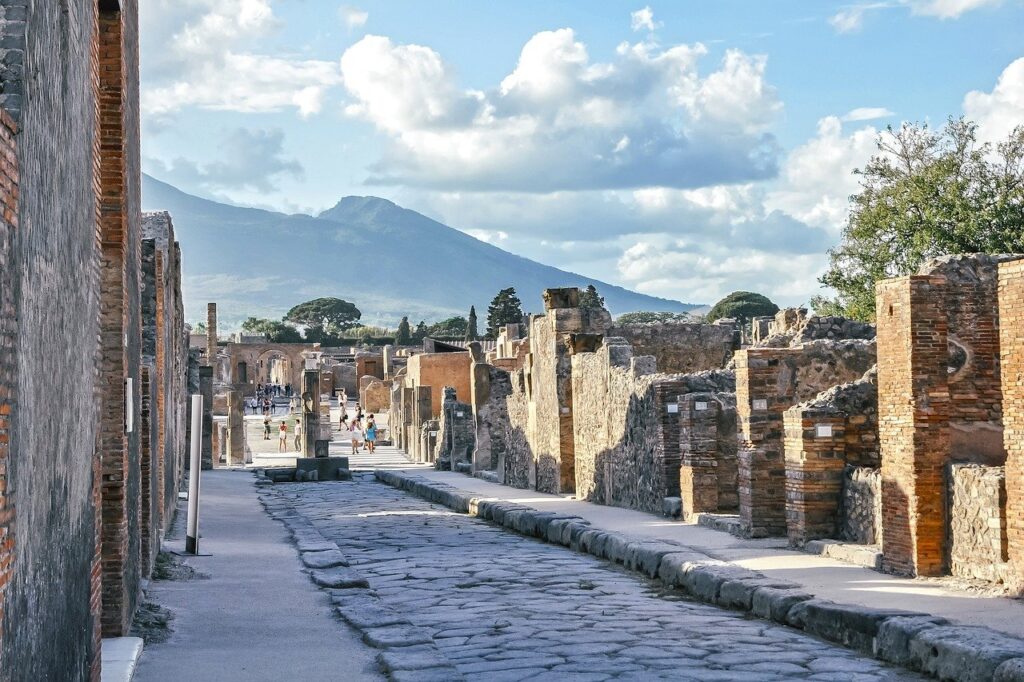
Both Pompeii and its neighbour, Herculaneum, offer an unprecedented glimpse into what life was like under the Romans. The volcanic mud, ash and lava that flowed in 79AD served to impeccably preserve so many of the Roman buildings in both towns. In Herculaneum, you’ll find the College of the Priests of Augustus, the Roman baths and theatre pretty much in tact, whilst in Pompeii there are a number of houses and buildings in excellent condition. These include the Capitolium, Basilica and public baths as well as the Surgeon’s House and the House of Mysteries. Not only that but both are hoe to a number of beautiful sculptures, mosaics and wall paintings. Visitors can literally walk along the old Roman streets and And visitors can walk along its old streets to really get a snapshot and record of what daily life was like at a very specific moment in our history.
Book your tickets to Pompeii and Herculaneum in advance to avoid the queues or enjoy a guided tour of Pompeii to make the very most of your visit.
Stay at this Italy villa rental if you want to explore Pompeii and Herculaneum.
2. Colosseum, Rome
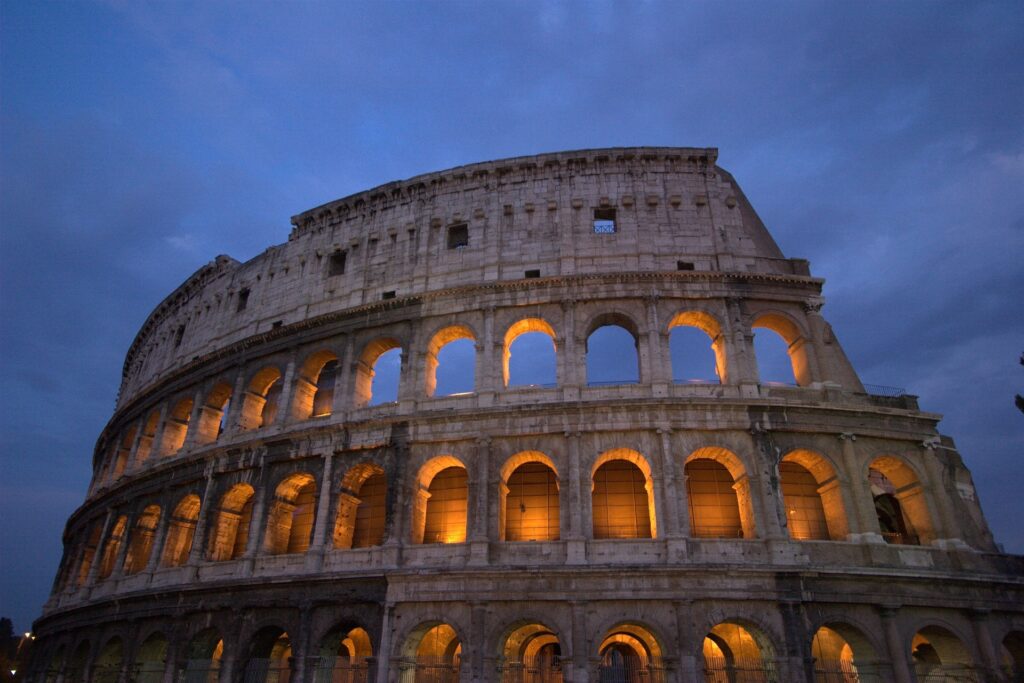
The whole of the historic centre of Rome has been one of Italy’s UNESCO World Heritage sites since 1980. It is home to the Mausoleums of Augustus and of Hadrian, the Pantheon, Trajan’s Column, the Forum Romanum and the Column of Marcus Aurelius, as well as the religious and public buildings of papal Rome. However, for us, the Colosseum is the most remarkable of all the ancient sites in Rome.
The Colosseum in Rome was actually the largest ancient amphitheatre every built, seating up to 50,000 spectators in its heyday (versus 30,000 in Verona’s amphitheatre). It took 8 years and the work of thousands of slaves to complete before being used for everything from gladiatorial games to maritime battles (when it would be filled with water) to animal hunts.
Just a word of warning! With over 6 million visitors passing through its doors annually, the Colosseum in Rome does get extremely busy so make sure you book skip the line’ tickets to the Colosseum in advance to avoid any queues.
Find out how to spend 48 hours in Rome thanks to our handy travel guide.
3. Valley of the Temples, Sicily
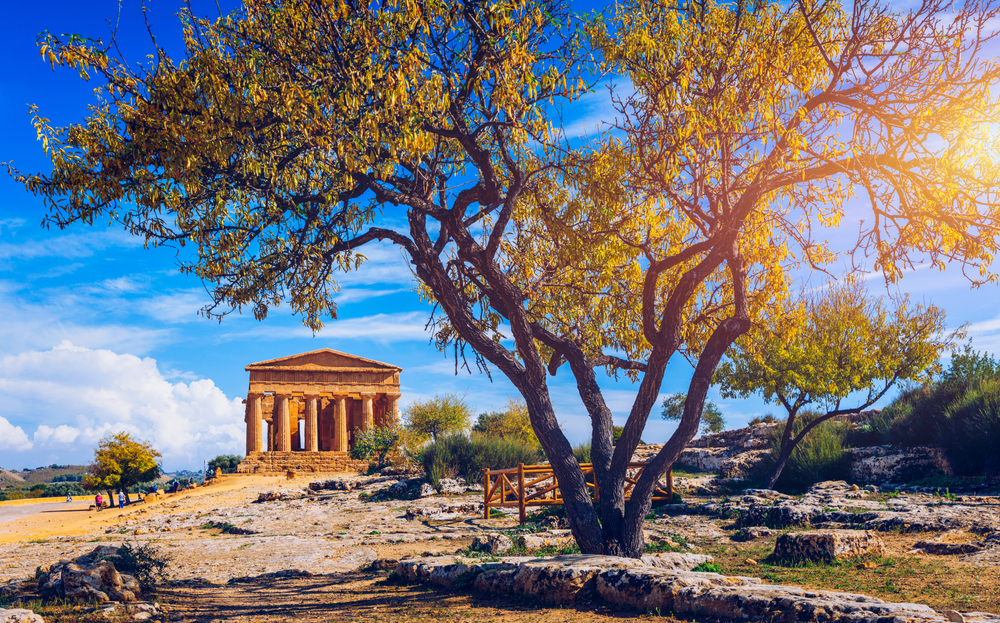
The largest archeological site in the world, covering a space of over 3200 acres, the Valley of the Temples in Agrigento is, like Pompeii and Herculaneum, incredibly well preserved. Originally founded back in the 6th century BC as a Greek colony, these days visitors can admire a whole host of Doric temples and buildings within the site. These include the Temple of the Dioscuri and the Temple of Olympian Zeus which is, without doubt, the greatest Doric temple in the Western world, measuring over 30 metres tall and with enormous statues over 8 metres tall placed between the temple’s columns. Agrigento is also home to the Temple of Heracles, the Temple of Hera Lacinia and the Temple of Concordia. The latter is the best preserved of the temples on site, with a beautiful six column, triangular pediment facade. Book your tickets in advance here for a guided tour of this bucket-list historical site.
Stay at this Italy villa rental if you would like to explore the Valley of the Temples for yourself.
4. Duomo, Milan
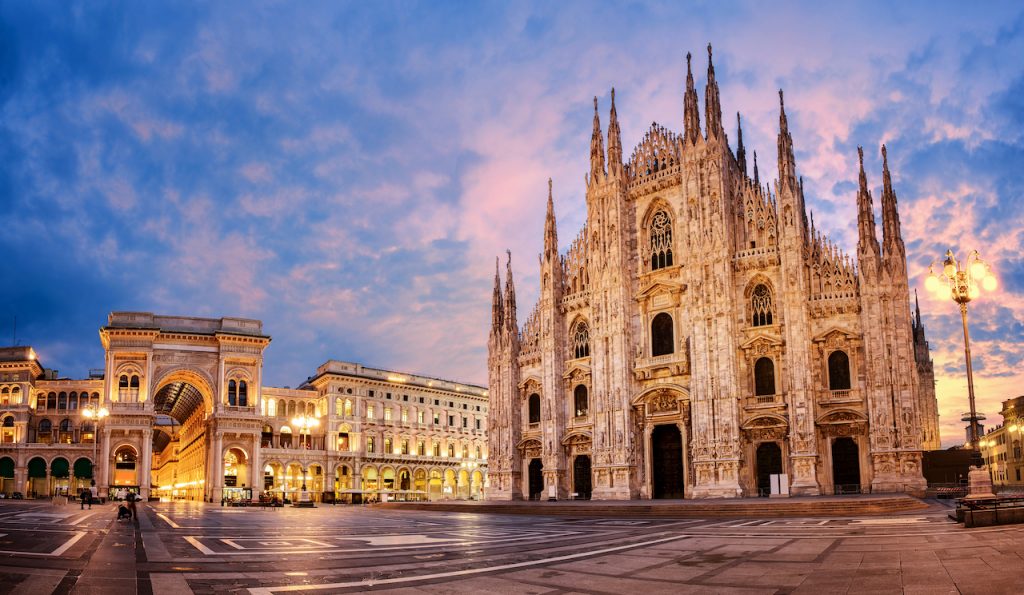
We have rather a soft spot for Milan and, for us, the white and pink marble Duomo is definitely the focal point and heart of the city. The Duomo in Milano is actually Italy’s largest cathedral, taking over 600 years to build. To put its size into some perspective, it can hold up to 40,000 people inside. These days, visitors can enjoy two very different takes on the building. Enjoy both a visit to the incredible interior before heading to its rooftop to enjoy a rather different perspective on this iconic structure.
Avoid the queues by booking fast track tickets to Milan Cathedral.
Find out how to spend 48 hours in Milan thanks to our handy travel guide.
5. Duomo, Florence
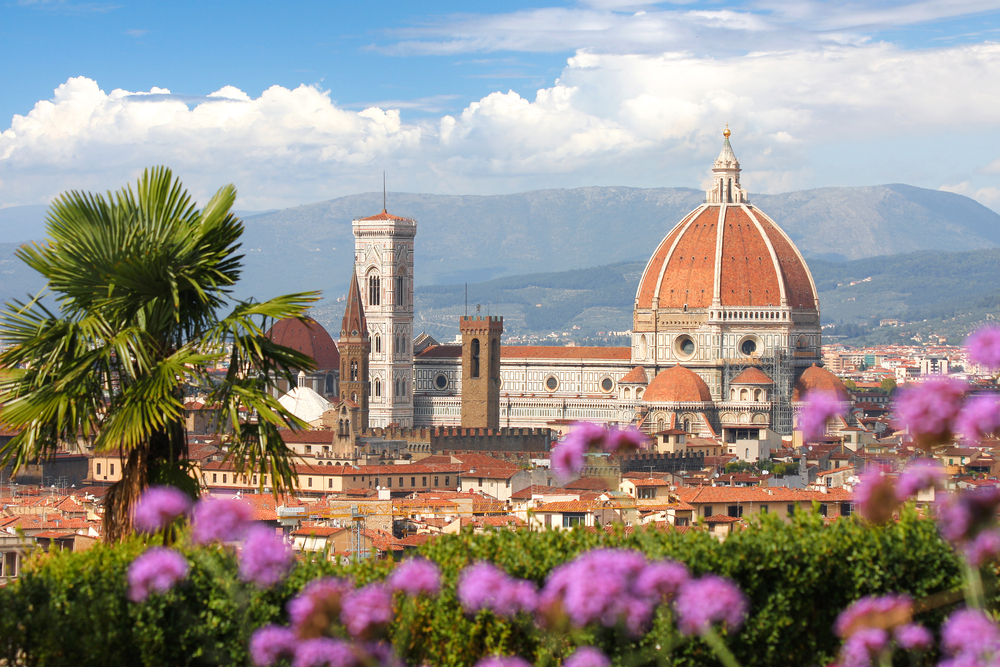
Like Rome, the whole of Florence’s historic centre is one of Italy’s UNESCO World Heritage sites. However, just like the Colosseum in Rome, for us the Duomo in Florence (Cattedrale di Santa Maria del Fiore) epitomises the essence of the city. The dome was designed by Arnolfo di Cambio and Filippo Brunelleschi who had been inspired by the dome of the Pantheon in Rome. Its construction signalled a revival of classical proportions and architecture at the start of the Renaissance period and, at the time it was built, it was the largest of its kind in the world. Opt to climb the 463 stairs of the Duomo to enjoy a great view over the city. Or, instead, you may prefer to get a magical view of the dome itself by climbing the 414 steps in the adjacent Campanile. Remember to book your tickets in advance here to avoid a long queue for this must-see sight in Florence.
Find out how to spend 48 hours in Florence thanks to our handy travel guide.
Stay at one of these apartments in Florence if you want to explore the Duomo for yourself.
6. Sassi of Matera
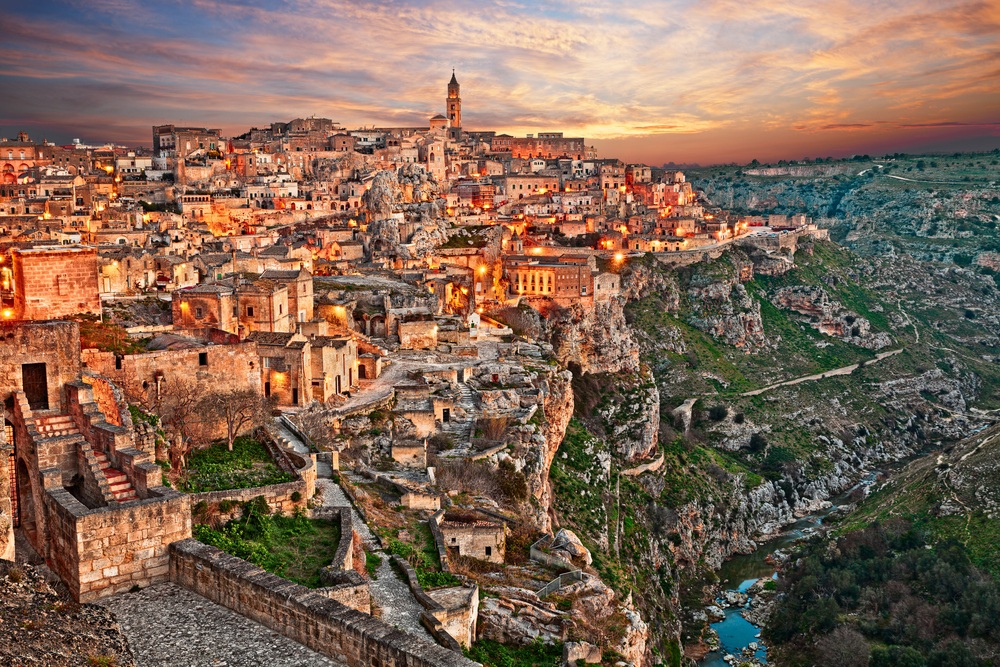
Italy truly is an incredibly diverse country and, for me, nowhere sums this up more than Matera. Matera’s sassi are, essentially, homes carved into the rock and the resulting landscape is both dramatic, beautiful and unique. Pay a visit to the Sasso Barisano to learn more about the history of these cave dwellings, some of which date back to the Palaeolithic period and which have been continually inhabited through to the modern day. You may well recognise them from the latest James Bond film, No Time to Die, which used Matera as the backdrop of its gripping opening sequence. Matera is an incredible city and to get the most out of it we recommend booking a tour in advance here to be sure not to miss out on any of its wonder and beauty.
Stay at one of our Italy villa rentals in Puglia if you want to discover Matera for yourself. Puglia is a great base from which to enjoy a day trip to Matera in neighbouring Basilicata. Or, find out how to spend a day in Matera with our handy travel guide.
7. St Mark’s Basilica, Venice
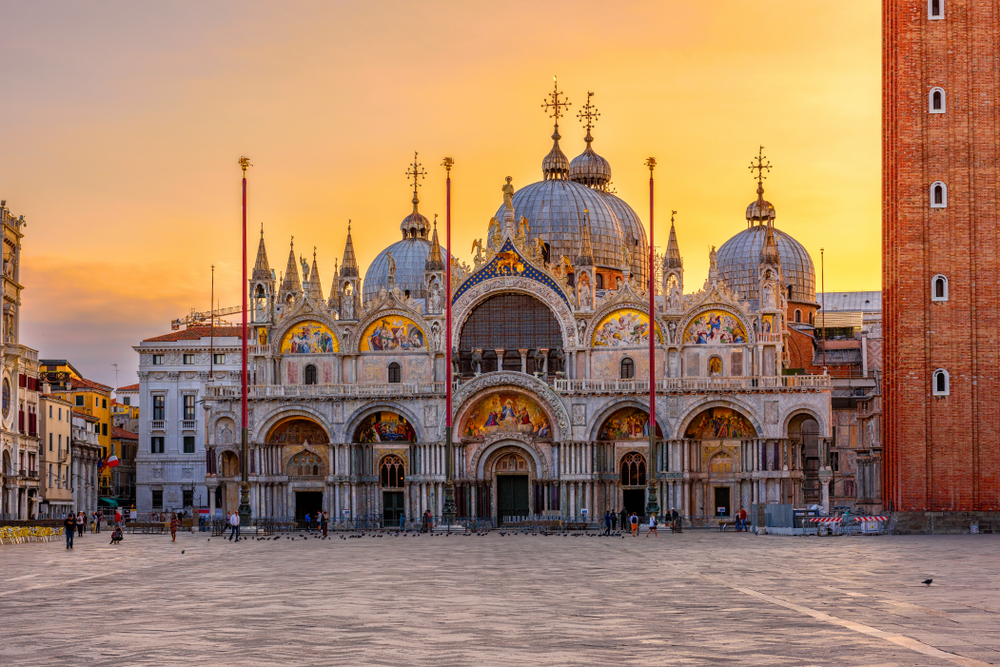
Venice needs no introduction and one of its most iconic historical sites is St Mark’s Basilica. What you see today was built in the 11th century, replacing an older 9th century church. Originally built as the private chapel of the Doge, St Mark;’s Basilica became the official cathedral of Venice in 1807. Its marble exteriors and the dazzling, golden mosaics of its Byzantine domes, covering an area of over 8000 square metres, are incredibly striking. Make sure you take the time to admire the Cupola of the Prophets, home to an incredibly ornate altarpiece decorated with over 2000 precious gems and best seen from the main altar where the tomb of St Mark is also kept. And of course when you’re making you plans, book your entry tickets and tours in advance here – Venice is popular all year round so you don’t want to waste any time in this stunning city in a queue!
8. Basilica of St Francis, Assisi
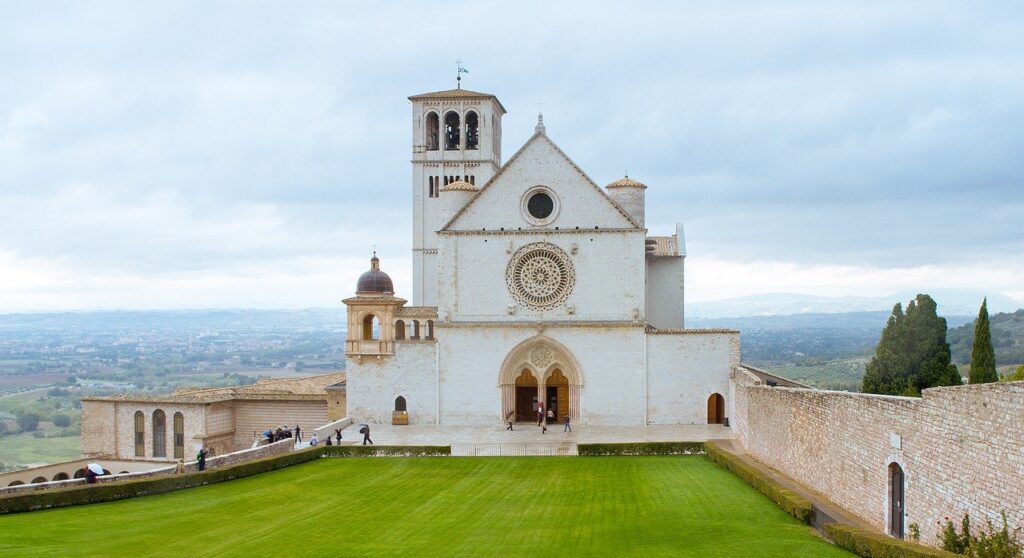
Assisi was the birthplace of St Francis and the incredibly beautiful 13th century Gothic Basilica di San Francesco attracts hundreds of thousands of pilgrims each year. The basilica is essentially divided into two parts – an Upper Basilica and a Lower Basilica, where you will find the crypt which is home to the remains of the saint.
If you’d like to visit Assisi, then this Italy villa rental in neighbouring Spello is a great option, easily accessible by bike along beautiful country lanes lined with olive groves and vineyards.
9. Leaning Tower of Pisa
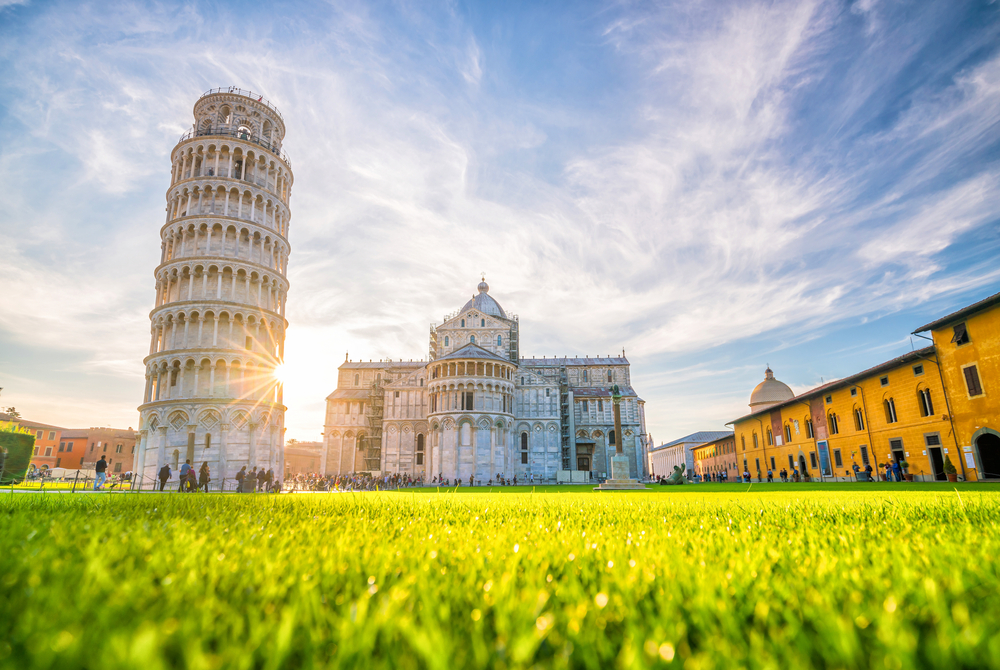
One of the most famous historical sites in Italy, the Leaning Tower (Campanile) is just one of a number of important monuments within the Piazza dei Miracoli. The others are the the Camposanto, the Battistero (Baptistery) and the Duomo. We love its appeal to both young and old alike. And it must surely with the prize for the most famous (and predictable!) tourist photo, with holidaymakers propping up the tower with their hand or using it as the gelato on their ice cream cone! It’s good fun just watching people try to snap that cheesy shot! But once you’ve had enough of the people watching, head inside up the 294 steps to the top to admire the views from the top.
As with so many of Italy’s main attractions, save time queuing by booking skip the line tickets to the Leaning Tower of Pisa in advance.
Find out how to spend 48 hours in Pisa thanks to our handy travel guide.
10. Trulli of Alberobello
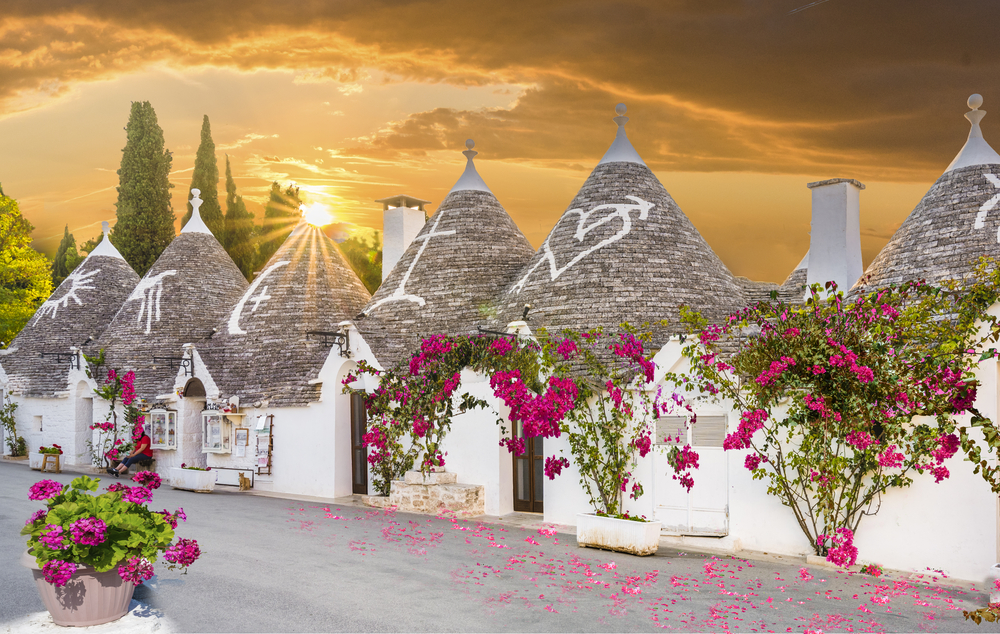
Alberobello is one of Italy’s UNESCO World Heritage sites in Puglia. It is home to approximately 1400 limestone trulli which date back hundreds of years, some as far back as the 15th century. The town is split into two parts – Rione Aia Piccola and the Rione Monti. The latter is where you will find the most trulli, which are now used as shops, cafes and homes. Keep your eyes peeled for the Casa d’Amore, the first trullo to be built using mortar in 1797, as well as the Trullo Siamese, so-called because it has two entrances into the one building.
Check out our guide to Alberobello to learn more about this fascinating historical site in Italy and book your tickets for a guided tour of these architectural marvels in advance here.
Stay at one of these Italy villa rentals in Puglia if you would like to discover Alberobello for yourself.
Find out more about which of these historical sites in Italy have been awarded UNESCO World Heritage status here. Or if our guide to Italy’s most historical sites has inspired you to visit Italy, take a look at our Italy villa rentals.


